» This page is PART TWO, continued from » Part One. It was split into FOUR pages in order to adhere to principles of web site optimization. Here you go...
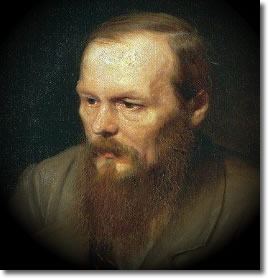 » Who is this DostoYEVsky dude?
» Who is this DostoYEVsky dude?
"Who?" I interrupted and asked. But the officer [off-going EOOW] wanted to continue with his original train of thought.
So I waited a little and asked again. =)
"Who's this dahs-tuh-YEF-skee dude?"
My recollection of his answer goes something like »
"He's a Russian novelist from the 19th century who wrote about subjects that are DARK, such as Crime and Punishment. He had remarkable psychological insight. He could see into your soul."
The word 'dark' was the thing that stuck out. My curiosity was piqued .. because I found myself wondering » "Why would anybody want to write about a dark subject? Because who would ever READ about such a thing?"
I remember walking away and thinking to myself, "Crime and punishment .. that is a HORRIBLE topic. Nobody in their right mind would ever want to read about crime and certainly not about punishment."
[ Key phrase » in their 'right mind'. ]
The thoughts continued to come as I ducked thru the water-tight door, heading forward to the mess decks .. with the aroma of grease-burgers growing stronger.
[ The officers eat by themselves, with the captain and the XO .. not with us lowly enlisted folks. Heck, even the chiefs won't eat with us. They eat in the "goat locker." ]
"This Dostoevsky dude must be very strange," I thought. And I wondered what events in someone's life could make them such an expert on the disk-side .. that they are able to write entire novels on the subject.
[ That is obviously a dangerous rabbit-hole-of-a-question, my friend. =) So let's go take a look .. and see where this wormhole leads. ]
Clearly, there was something I did not understand. But at 21, there's a lot you dont understand. You just don't know it. (Yet.)
Perhaps it is worth noting .. that the first time I heard the name 'Dostoevsky' .. I was standing on a large movable object .. specifically designed to rain down death and destruction .. on a scale never before seen on the planet (.. should the need arise).
So you could call it » The Exterminator. (The life exterminator.)
Tho officially [ repeat after me ] .. "I can neither confirm nor deny the presence of nuclear weapons aboard this United States naval vessel."
And over the years .. I would hear this distinctive Russian name mentioned .. you know, here and there .. from time to time.
But every time .. the thought would come » "There's something there .. something you might want to look into .. if you have cojones grande sufficientcio. A taunting distant echo » 'Are you afraid of the dark?'."
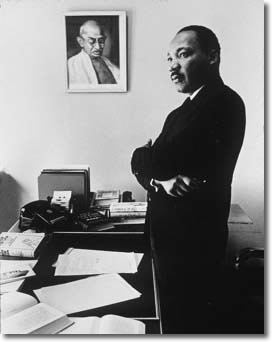 » The Great Prophet of the Twentieth Century
» The Great Prophet of the Twentieth Century
And these mentionings always contained a bit of fright in the person who uttered the name ..
.. as tho he would immediately run away, shouting over his shoulder, "He's coming! Run!"
Yes, I exaggerate, but that's the mood I remember. Dostoevsky's name only arises in certain types of conversations.
And this was before I learned that the French existential philosopher Albert Camus [ ca-'moo, 1913-1960 ] called Dostoevsky "the great prophet of the twentieth century".
But the thing I dont get is .. Dostoevsky [1821- 1881] never lived in the twentieth century. He died nearly two decades shy. So how can he be "the great prophet of the 20th century"? See my point?
Is Albert saying that Dostoevsky was ABLE TO SEE INTO .. the next century? Sure would seem that way.
But if Dostoevsky is "the Great Prophet of the Twentieth Century" .. then who is the Great Prophet of the Twenty-First Century? .. the century in which you and I live.
I'll return to this question later. For now, I am merely cocking back our slingshot .. so later we can let the smooth stone fly .. with added velocity.
••• today's entry continues here below •••
I am no expert here .. but my understanding, my impression .. is that Dostoevsky's final work .. about Dmitri, Ivan & Alexei (.. aka » the brothers Karamazov) .. is a throw down of sorts .. by a True Master of the craft .. a literary, muscle-flexing pose-down, if you will.
"Check out these 24-inch pythons, brother."
And the parts of the Brothers that Dostoevsky himself considered as representing the heart of the novel were » Books Five and Book Six [ 12 books total, contained in 4 Parts, with 3 Books per Part, and several smaller Chapters per Book ].
» Dostoevsky's Uniquely Prescient Analysis of Totalitarianism
 And Book Five is where we find the chapter titled » The Grand Inquisitor .. a single chapter (18 pages) about which whole books have been written.
And Book Five is where we find the chapter titled » The Grand Inquisitor .. a single chapter (18 pages) about which whole books have been written.
Here is where Dostoevsky delivers a "uniquely prescient analysis of Totalitarianism" [ « 7 syllables ..
.. which is almost as bad as » Neopythagoreanism, which has been defined as "a link in the chain between the old and the new" ] ..
.. particularly the variety of Totalitarianism as practiced by the Communist brand.
So, my understanding is that this is where Dostoevsky gets his bona fides regarding the prophetic claims made by 20th century dwellers. (Tho he said many other hair-raisingly insightful things.)
So naturally I am interested in whatever insights the Russian may have to offer. And my life has been just crazy enough .. that I now feel that I have what it takes to give this man ..
.. this nineteenth century Russian (.. to whom so many prominent and celebrated twentieth century intellectuals pay homage) .. an honest look. Yes, an honest look.
And winter is, or course, the best time to discuss Russian writers. So the day has come. And today is the day. [ January 11, 2013. ] "He's coming! Run!" But I am ready for him. (At least, I think I am.)
This is kinda a big deal for me. I've been looking at Dostoevsky for a while now (several months, recently) .. and just today .. I caught my first glimpse .. of what Einstein and company have all been alluding to.
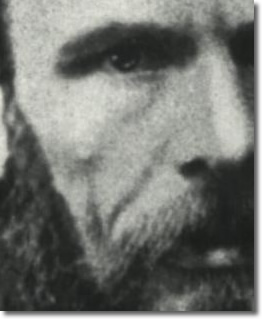 » What Makes Dostoevsky Dostoevsky?
» What Makes Dostoevsky Dostoevsky?
Let me be bold here .. and state .. that I am looking for » the "thing" that makes Dostoevsky Dostoevsky.
The essence of the man.
"The great prophet of the twentieth century," as Camus calls him. From nobody's perspective but my own.
[ Cuz .. to be honest .. I've kinda lost faith .. in those who I used to trust ..
.. whose opinions I used to esteem. (It's sad, when you think about it.)
And this pattern seems to carry over into other areas of my life. Now I want to see for myself.
I wish our lawmakers would do the same .. by which I mean » actually READ the bills they vote into law ..
.. instead of just letting the lobbyists craft the bills to their own specifications (.. to their own advantage). Because John Q. can't afford a lobbyist.
If there is one thing that the boys on Wall Street have taught us .. it's that » if we leave the Laws that govern the Financial Markets to them, they will grow fabulously wealthy .. until they break the economy .. which curiously, hurts only us.]
So I need a clear, insightful look. I don't know whether or not I'll be able to get it .. but that's my goal, my aim, my mark. Just so you know. Things could get a bit bizarre. =)
<begin_pack_the_pipe_with_independent_oddball_sidebar>
Speaking of the bizarre .. or at least the curiously interesting .. note that .. in the SECOND sentence of the book, Dostoevsky uses the phrase » "I can foresee the inevitable...".
I am talking about in the preface titled » "From the Author". [ That would be from Dostoevsky himself, not the book's narrator (.. an admittedly small but not insignificant distinction). ]
Right now, I am not asking you to do anything with that insignificant factoid. Stick it in your nineteenth century pipe and we will smoke it later .. with some interesting friends.
This page-and-a-half pre-story intro .. is where Dostoevsky himself comes out .. to greet you (his audience) .. like Oliver Stone before a grand premiere screening in Hollywood or New York ..
.. where he humbly says <liberal_paraphrase>, "I just want to give you nice folks fair warning .. that you might not enjoy the film. I did my best, but .. well, you will have to see. I have instructed the cashiers to refund all requests in full. Without question."
But people would only say such things if they were certain that no one would make such a request. So I see his intro as an act in which the author is so confident .. that he comes out before the show ..
.. just to fuck with you a little .. in a light-hearted, playful sort of way. (Like the Dog sometimes does.) Cuz he he knows he has delivered the goods.
Hemingway said about F Scott Fitzgerald, regarding a comment that Hemingway made .. shortly after the publication of The Great Gatsby (1925) »
» "To hear him talk of it, you would never know how very good it was, except that he had the shyness about it that all non-conceited writers have when they have done something very fine, and I hoped that he would get the book quickly so that I might read it." [ « from the chapter titled Scott Fitzgerald of the novel » Moveable Feast. ]
Before Dostoevsky exits the introductory stage, he notes that the independent-thinking person, who you consider an odd-ball .. might not be such an odd-ball after all. "Enjoy the show .. if you can."
Here is the exact sentence from Dostoevsky himself taken from the single-page Intro that he wrote for the Brothers:
"Not only is the odd man "not always" a particular and isolated case, but, on the contrary, it sometimes happens that it is PRECISELY HE, perhaps, who bears within himself the heart-of-the-whole, while the other people of his epoch have all for some reason been TORN AWAY from it for a time by some kind of flooding wind."
I am guessing that here Dostevsky is making the point » "Dude, your individuality [oddity] is what makes you you. So that's where your power is. Not as one of those sheep who care to eat only what the king sets before them."
'Cept he probably wouldnt say 'dude'.
</end_pipe_packing_sidebar>
It is beyond my ability, at the moment, anyway, to accurately articulate what I saw .. but I caught a glimpse of THE BIGNESS of the man. And it is very cool. Impressive .. awesome, even .. that a man can attain such a thing .. to such a place. Humbling. Inspiring. Challenging.
[ And this glimpse .. that was the thing .. that was the moment .. that I knew it was time to write today's entry [ "Whoa! That was verrry cool." ] ..
.. and knew what my topic would be .. cuz I was definitely disoriented after Newtown. Definitely in a funk. A soul-searching funk.
So here we are. In other words » it feels like I had to get in shape .. in order to write today's entry.
When the intuition came .. that it was time to write today's entry .. I admit that didnt feel ready. Not entirely ready. But I knew it was time .. ready or not. (Here I come.)
I've never had that feeling before .. that I needed to write before being ready. That's how I knew something was up.
Update - Here is a page I referenced earlier » fyodor dostoevsky dot com. There is one more page/quote (yardstick) that I am trying to find.
Read thru his list of quotes and see if you can't see the mountain yourself. My gratitude to whoever assembled that page.
I have read more-than-a-few Dostoevsky quotes and can see the care he put into assembling that page.
Easy to see the love. ]
My glimpse of Dostoevsky is sort of like your view of a mountain. You get one image of it from the north, and another from the south.
But you can't seem to put all the images together at the same time .. because it is so big. That's kinda the feeling I have. (Right now, anyway.)
Notice Hemingway's comment about Dostoevsky, how he mentions » "frailty and madness," and especially » "wickedness and saintliness." Opposites.
Not only do opposites make for great contrast, but they also require experience in both worlds .. in order to discuss authentically.
Plenty of people stand with both feet firmly planted in the world of saintliness. You probably know a few yourself. Many more occupy the world of wickedness, I dont have to tell you.
Let me share this quick 'for-example' regarding the novel. The very first thing we see when oldest-son [ Dmitri, age 18-ish? ] meets his dad [ Fyodor Pavlovich is a piece-of-work, extraordinarie ] ..
.. when the boy is first old enough to recognize his father, the father who abandoned him at age 2 (when the mother died) ..
.. is the GLEE the father has upon seeing how skillfully he will be able to trick-fuck HIS OWN SON .. out of his inheritence ..
.. which he does, of course. Tho when dad died, 100 thousand roubles were found stashed away in hard cash.
In fact, the dad has trick-fucked his own son so well, so remarkably well .. that the son might actually owe his dad money. A direct quote from the book:
"Fyodor Pavlovich saw at once (and this must be remembered) that Dmitri had a false and inflated idea of his property. Fyodor Pavlovich was quite pleased with this, as it suited his own designs."
+ later down the same page:
"The young man was stunned, suspected a lie or a trick, was almost beside himself, and, as it were, lost all reason. This very circumstance led to the catastrophe, an account of which forms my first introductory novel, or better, the external side of it."
This is a good passage to quote .. because the "catastrophe" of which he speaks .. in the dad's murder, and the book is about investigating and figuring out WHO DONE IT.
So, in this sense, my initial expectations of the book have been something like » "Oh, really? You think dad fucked you over bad? That's nothing, bro. Let me tell you what he did to me!" ]
This seems like the perfect place to note that ..
.. Dostoevsky quickly makes the point .. right out of the gates .. that rich folks [such as Fyodor Pavlovich ] are NOT rich because they are so fucking smart.
No, sir. In fact, they're actually surprisingly "muddleheaded". While admitting that they are not stupid ..
.. he clearly infers that the reason that some (most?) rich people are wealthy .. is because » they are cold hearted fucks.
Both my parents have long passed away .. but my brother and I talk sometimes (.. and sometimes not) ..
.. but I remember him saying (my younger brother is the funniest person I know, a surgeon) ..
.. "In medical school they don't teach you much about mental-health. I only had one class in abberrant psychology." (And this he said totally seriously) » "But I noticed that dad had a lot of the things they described." =)
Being born in the heart of the Great Depression .. into a poor family .. youngest of 6 .. causes you to look at money as a sort of savior. The imprint is made with hand-held sledge.
The scarring is rather apparent .. from the inside-view. Remarkable. Very thorough.
Most parents try to compensate for the limitations that they are conscious of.
It's the ones who arent aware of their problems .. who are the problems. (And the ones who frankly don't give much of a fuck.)
</end_fyodor_pavlovich_dad_vs_first_son_dmitri_sidebar>
Okay, here is where we were before we fell into that sidebar (copy-n-paste) »
»» Plenty of people stand with both feet firmly planted in the world of saintliness. You probably know a few yourself. Many more occupy the world of wickedness, I dont have to tell you.
But when you find a man who stands with one foot in each world .. that is no easy feat. This speaks to the 'bigness' of the man that I mentioned earlier .. to bridge the gap between wickedness and saintliness. (Reminiscent of Christ himself, no?)
» The Colossus-Stance Delta
Notice how Henry Miller says » "Dostoevsky rose from the depths and, reaching the summit, retained something of the depths about him still." From-the-depths-to-the-summit .. can be another way of saying » resurrection.
Anyway, it is this straddling of both good and evil .. the wide stance .. that catches my attention in an unusual way .. cuz it seems/feels like there is something I dont fully understand / comprehend.
In scientific / engineering class, the "difference" is referred to as "the delta" from the Greek letter ] .. like a modern-day Colossus of Rhodes .. that somehow intrigues me. The idea of 'knowing' both good and evil goes back in our culture a long way.
It may be worth sharing another example of this 'delta' .. of the same principle but different setting.
Notice in Pauls's letter to the Hebrews (his blood brothers-in-Israel) .. he writes [ in the first two verses of chapter 7 ] about a priest-king named Melchizedek.
Notice how the phrases 'King-of-Peace' and 'Slaughter-of-the-Kings' .. come together .. in a meeting (.. where riches & wealth are transferred).
Two things you wouldnt ordinarily expect to find together .. no? Peace & slaughter. No doubt Abraham & his men returned home covered in the blood of their enemies.
Big delta. For extra-credit points, compare the wide-stance delta with/to these verses of Scripture, and maybe even how differently the sentiments contained in those verses compare with the moden, default-view of Christianity
There is a quote somewhere that I remember reading .. which went something like » "Dostoevsky is so far above and beyond anything humanity has experienced thus far .. that we dont even have a measuring stick by which we are able to gage his greatness."
And that's exactly how I felt when I got my glimpse. So what do you do? You measure » parts. Inseam? 29-inches. You measure what you can.
It surprises me that I've never had this feeling before .. like I am not able to take a reasonably accurate measure of a man, any man (.. deity aside). I did not even know such a thing was possible.
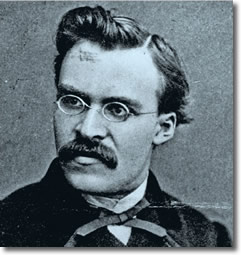 Remember when I crawled up Nietzsche's butt? Armed with little more than a flashlight, a clipboard and a pair of tweezers? No problem there.
Remember when I crawled up Nietzsche's butt? Armed with little more than a flashlight, a clipboard and a pair of tweezers? No problem there.
And what about Che? Fun stuff. Then there was Mao. Very nice. I am particularly proud of my piece on Tolstoy.
But Dostoevsky? He is different. Definitely different .. tho I dont know why.
[ Before today I thought I might be psyching myself out. Before today I *was* psyching myself out. But I no longer feel that way. ]
Now, these guys .. guys like Einstein and Wittgenstein .. they are obviously über-minds. But I still wanna take my OWN honest look .. and report back what I see/find.
I can feel myself chomping at the bit .. wanting to get into it. But I want to craft a more structured report. And I could easily get carried away here.
» Digitally Structured Dostoevsky
Curiously, I can feel some of the same 'muscles' .. that I developed while learning about programming .. kicking in as I peer into Dostoevsky's soul.
That seems very strange to me (old/new). Almost as tho I am going to 'process' the old (Dostoevsky and his psychological insights) via my new paradigm ..
.. which employs principles derived from digital technology, and programming in particular. Intuitively speaking.
I am, for example, very much aware of (conscious of, automatically, without trying to) the conditional if/then statement .. its structure .. its predefined structure .. something a programmer would be familiar with .. on an intuitive level.
<begin_digital_dostoevsky_sidebar>
For another example, without getting too detailed .. a fundamental concept in programming is that of » data types.
Such as » 'strings' (of text) and numbers (1, 2 ,3) and booleans (true/false) and null (empty), and arrays (groups of individual things), and objects.
And with Dostoevsky, we have types such as philosophical and psychological and spiritual / religious. Even moral.
Here is a more-specific example of a pattern-of-types may help you better organize "the Brothers" (.. as Hemingway calls them).
- Dmitri » sensual (most like his father), the eldest, the firstborn. The soldier.
- Ivan » intellectual (seems to be the most fucked up. He hates his father and wants to kill whatever it is within him that reminds him of the father, who does not feel like a father should .. probably because Ivan does not feel like his son). The Non-believer.
- Alexei » the youngest, the darling » the spiritual, religious [ .. when you spend several years in a Russian concentration camp in mid-nineteenth century Siberia, uh, I would imagine you get religion the old fashioned way ]. The novice.
The body, the mind, and the spirit. There's not many places you can't go with those characters. Especially interesting to see how they interact and relate to one another.
And you can DO THINGS with data types .. manipulate the data .. based on criteria that you yourself can establish.
Programming gives order and structure to complex 'things'. One prof at MIT even said » "Programming is about controlling complexity."
And you may have noticed .. that my entries have been g.r.o.w.i.n.g .. in both SIZE and complexity (.. quite organically, I might add). Today's entry is surely one of, if not thee most complex to date.
So (therefore, ergo) programming is very much about » abstraction (.. a technique to control complexity).
And I can feel myself abstracting .. complex concepts into more simplified ones .. for the purpose of building bigger 'things' .. for the purpose of boldly GOING BEYOND [ cue Star Trek soundtrack ] where I have never gone before. =)
I mean, I can feel my inner writing muscles .. stretching and yearning to grapple with something that will test/develop my skills .. in multiple ways.
I mean, think about it » numbers themselves are merely abstractions. Symbolic abstractions. The numbers 3. You can't hold the number three in your hands. Why not?
But this does not prevent us from manipulating numbers .. in far more liberated ways. Unlimited, actually.
But we are definitely limited when working with brick-n-mortar. Even with steel and exotic composites.
Math itself is all about abstraction. And manipulating these abstracted symbols. 1+2=3. I have always had a knack for that .. for mathematical manipulations.
[ It seems to have come with the original Rad 1.0 release .. far as I can tell. ]
One of my favorite times ever (EV-vuh!) .. came during my 2nd-semester Calculus class .. which naturally came after the first, which tuned my brain nicely.
And I remember how the raw computational strength of my mind was very strong. Noticeably so. Sort of like what your body might feel like after six months of progressive weight-training.
It felt like even complex concepts were simple, like even sophicated problems could be easily unknotted.
I especially recall my final exam .. how I had TWO separate calculators on the desk .. one graphing [TI-85, I think] and a standard science calculator [SR-40?] .. and how I was going back-n-forth between the two ..
.. using the smaller one for feed data into the bigger. Coulda swore I saw smoke rising from those puppies. Certainly my fingers were on fire.
The feeling is that .. you can explode rocks with your mind. I *love* that feeling. Unfortunately, it does not come cheap.
Whereas math manipulations seem to build raw intellectual muscle .. philosophy gives you insight. Sharpens the knife of reason.
Philosophy is a class better-appreciated after a number of years spent living as an adult. In the real world. Where you encounter real-life problems.
My opinion. Because real-life experience gives you a far better basis to demo the various philosophical concepts. Demo with your imagination.
Life experience gives far better context .. than simply memorizing the "key-words-and-tricky-phrases" you need to be able to regurgitate in order the pass the exam.
[ I've done both, so I know.
Speaking of test-taking (.. and their techniques) .. my brother, I would wager, is the best Crammer you've ever met. All night. Perfected to the level of an art-form. =) ]
The danger is that you get soo-much real-life experience .. that you are never able to return to school/college. =)
In 21st century literature, the hyperlink has become one such abstraction tool ..
.. which allows the html-based author to refer to MORE DETAILED information (for those who want or need more).
And for those who dont » we move on. "We'll meet you at the secret rendezvous point. Have fun. Giddy-up, space ranger."
Certainly this represents a quantum leap in expressibility .. that writers of yore (.. with all due respect) did not have .. at least, not without mucking up their text with footnotes galore.
If you had not read all of the books that these authors alluded to .. you were out of luck. You simply wouldnt 'get' the full impact of what they were talking about.
But the hyperlink allows the 21st century author .. to INCLUDE a reference .. for those who want/need one.
It also lends an aire of supporting-authenticity to a document .. to show that your ramblings are based on more than just fantastik speculation. To show you have done your homework. (And that you're not really as crazy as you might sound.)
Writing without html, and especially without the hyperlink .. would seem like such a handicap .. seeing I tend to think in terms of hyper-linked abstraction. (So I would naturally assume that everybody does.)
You may also have noticed that I also make good use of the <image> tag .. to add representative graphics to break up the text. [ That was Nigel's idea/suggestion. ]
The page that you are reading right now, for example, 'weighs' ~320 KB. Roughly 75% of that weight is due to » graphics. I take pains to encode high-quality images (.. within reason). 77 to be exact.
This is new for me. Only the last few years have I been using images. At first it was just ONE (representative) image per entry. Then I started to use them more to break up the text as the SIZE of my entries grew.
Nobody likes huge chunks of unbroken text. (It hurts the brain just to LOOK at.)
This guy right above you is Tim Berners-Lee .. the inventor of the web. "The father of the Web," you might say. British. I think the queen even knighted him. So he's kinda protected.
Since the hyperlink is one of the main things that makes the Web the Web .. I thought it apt to include his picture at that particular point. The web basically tries to MIMIC the way the brain works .. with one thought/idea/neuron connecting to another.
I normally like to see ONE, but only one graphic on my screen .. at all times .. for a point-of-reference for the text, and especially for » artistic expression. Graphics can compete on-screen, which is why I prefer only one. A picture is worth how many words?
The Technology involved, as you know, is very sophisticated .. requiring an array of diverse disciplines to achieve the desired end (.. connect point A to point B in the most efficient way possible).
And I can FEEL relational operators going to work .. in a surprisingly explicit manner. I mean .. without me consciously trying.
Does this mean that Geeks represent the next wave in evolution? .. possessing an intuitive ability to integrate.
It's a little scary, in a way .. cuz it feels as tho this thing, today's entry, today's poem, today's song is writing itself. Building itself.
Like I'm just along for the ride. No place for a control freak .. that much is sure.
You get interesting results when you demo » Life-as-a-Computer-Program .. in which one of our jobs .. is to 'work out the bugs'.
And I can *feel* this reverse-engineering thing going on .. where I » observe a particularly unusual result ..
.. and trace it back two or three steps (.. or generations) .. to its source. "Oh, that's interesting." Another piece to the puzzle.
It's a two-sided (binary) puzzle. One side is pretty. The other .. not so much. It can be fun to work from BOTH sides .. and see how the two correlate. Tho that technique seems to require Special High-Intensity Training [ SHIT ]. =)
</end_digital_dostoevsky_sidebar>
All writing comes from the soul of its author. And I am starting to get a feel for Dostevsky's soul. I want to say that "I can feel him" .. on a intuitive level .. but I will wait until I am more sure. Certainly this is true in some areas; but I'm not yet sure .. if I can make such a general / blanket statement.
But before I tell you what *I* see .. I'm going to tell you some things that OTHER PEOPLE have said .. because they have said some really remarkable things .. coming from some really remarkable folks (.. some of whom I have already mentioned) ..
.. and others, who have taken a good, hard, long look at the man. And who knows .. maybe Dostoevsky is a literary chameleon of sorts .. adapting his features to match the individual observer / reader. But my sense is that, in order to read Dostoevsky, you need more courage than intellect. At least, at first.
But before I quit for today, I will share the interesting quote that Dostoevsky uses as a tone-setter .. to begin his story about Dmitri, Ivan & Alexei .. aka » the brothers Karamazov. (.. that is the title I had in mind at the beginning of today's entry). It comes from » John 12:24:
"Verily, verily, I say unto you, Except a corn of wheat fall into the ground and DIE, it abideth alone: but if it DIE, it brings forth much fruit."
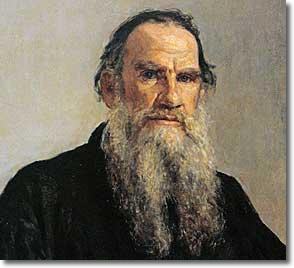 That's his tone-setter. Notice how the word 'die' is used twice. Food for thought .. that I'm sure we'll return to.
That's his tone-setter. Notice how the word 'die' is used twice. Food for thought .. that I'm sure we'll return to.
Notice how the sentiments found in this verse seems to be echoed in another verse found a few chapters later in the same book.
Because this is the verse of scripture found on Dostoevsky's tombstone. (That is very cool .. the sentiment.)
And the subtext you get here is » looking-at-the-ugly in order to get-to-the-beautiful.
In fact, it is more than merely looking AT the ugly. Rather, it is looking BEYOND the ugly .. to see / focus_on the (unseen) beautiful.
And whenever you starting talking about SEEING BEYOND .. you are talking about things prophetic and things visionary .. and even things akin to omniscience.
And we now have had over a century .. to analyze Dostoevsky's literature in the light of history. (We will likely spend some time on this topic.)
» Tolstoy Kicks Much Ass
One more quick point before I close for today. Tolstoy was born (1828) 7 years AFTER Dostoevsky was born (1821) .. but he LIVED for 30 years .. after Dostoevsky died (in 1881).
In other words, Tolstoy was able to contemplate Dostoevsky's complete works .. for 30 years. [ Because Dostoevsky died at age 59, but Tolstoy lived to be 82. 1910. ]
Tolstoy actually SAW the first decade of the twentieth century (.. just as you and I have just SEEN the first decade of the twenty-first century). And Tolstoy kicketh much ass.
[ Let's see .. what happened in 1914? That was a big year, right? .. if memory serves me correctly. Then a few years later » revolution.
Bring your own personal brand of revolution to the party. Let's get this party started. ]
Today's entry remains a work-in-progress. [ WIP. ] We will finish our ascent of Mt. Dostoevsky later.
In keeping with the tenets of web site optimization, today's entry has been broken into FOUR PAGES. The next page is posted here » Dostoevsky, Aaron Swartz & the Broken Butterfly of Tomorrow - Part 3/4
<intentional_spacer>
<moveable_type_spacer>
